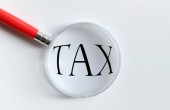Doubt is cast on HMRC new IR35 proposals for contractors
Article Author: Charles James Posted on: September 09, 2016 (Full Author Bio in the box on the right side) 4111 views
4111 views

Earlier this year, HMRC announced its plans to introduce an IR35 status test for contractors working in the public sector. Although in principle there are significant benefits to contractors, there’s always been a question of how HMRC will administer the process to make it easy to understand and accurate.
In August, HMRC published its consultation response which saw almost every respondent echo the initial concerns about accuracy and simplicity.
Now the Office for Tax Simplification (OTS) has also cast doubts for the very same reasons. The OTS was set up to review and challenge the tax system to be simpler so it can be understood ‘by the common man’.
The OTS reviewed the proposed test and pointed out that “The first two parts of the test do not give certainty as the decision provided is not binding.” This confirms the thoughts of most within the contract industry, so it’s refreshing to hear OTS confirm this, but we’re yet to know what will be done about it.
In addition to the introduction of a test, there is some complexity in the calculation of tax, where those considered to be ‘inside IR35’ will have to pay tax as an employee would. However, the proposal is that the organisation paying the Limited Company contractor will be the ones to calculate taxes and pay HMRC (rather than the contractors company). Yet, the company will still have an obligation to pay VAT.
In response to this, OTS said “Having someone treated as an employee yet still having to charge VAT has overtones of the tax system having its cake and eating it; it also adds further to public sector costs given that in many cases the engager may not be able to recover the VAT charged.”
In March 2011 in the OTS Small Business Tax Review – Interim Report, OTS called for IR35 to be suspended as they believed that it’s “not effective, either for the individuals affected or for the Exchequer”. Clearly, this advice was not taken and HMRC continue to pursue the approach.
Over the past 10 or so years the UK economy has changed drastically, with far over 1.91m individuals operating on a freelance basis (IPSE, 2015). This means a significantly greater change in employment statuses for individuals. For this reason, many within the industry have been calling for a review of tax and employment status as an holistic approach, rather than simply ‘employed’ or ‘unemployed’.
Interestingly, the OTS have also confirmed their belief in this approach asking for “a project to try to develop a simpler test that can provide binding certainty taking into account both tax and employment status.”
It’s still early days, but this could be the first real acknowledgment and step towards a clear status indicator. Perhaps even a third employment status, somewhere between employed and unemployed.
Latest Posts
-

Staying HMRC Compliant: VAT Returns Have Chan...
by Amanda Swales on January 29, 2020 Accounting & Tax -

Self Assessment Tax Return 101 - Filling In T...
by Amanda Swales on January 15, 2020 Accounting & Tax -

-



 The Taxman is going to war on UK Contractors
The Taxman is going to war on UK Contractors  Why Contractors should save for a rainy day
Why Contractors should save for a rainy day  What does change in dividends mean to UK Contractors
What does change in dividends mean to UK Contractors  Personal Service Company Guide for UK Contractors
Personal Service Company Guide for UK Contractors  Simple guide to Tax relief on Motor expenses and business mileage
Simple guide to Tax relief on Motor expenses and business mileage  Insulting to Contractors
Insulting to Contractors  10 Must Have iOS Apps for UK Contractors
10 Must Have iOS Apps for UK Contractors  HMRC admits contractor tax change legislation needs a rewrite
HMRC admits contractor tax change legislation needs a rewrite  FCSA submits its official response to the HMRC consultation
FCSA submits its official response to the HMRC consultation  UK plc confused about T&S regulations says FCSA research
UK plc confused about T&S regulations says FCSA research  Why Contractors in trust based schemes should think twice
Why Contractors in trust based schemes should think twice  Amendments in Finance Bill to prevent misuse of Personal Service Companies
Amendments in Finance Bill to prevent misuse of Personal Service Companies  Autumn Statement 2016 - How will the VAT Flat Rate Scheme Restriction Affect Contractors?
Autumn Statement 2016 - How will the VAT Flat Rate Scheme Restriction Affect Contractors?  Chancellor announced dividend tax hike from April 2016
Chancellor announced dividend tax hike from April 2016  Changes to the Flat Rate VAT Scheme are coming - are YOU ready?
Changes to the Flat Rate VAT Scheme are coming - are YOU ready?  Why Contractors should set up a home office
Why Contractors should set up a home office  How Important is IR35 and Tax Planning to Contractor Accountants
How Important is IR35 and Tax Planning to Contractor Accountants  What a Directors loan means and who can take one
What a Directors loan means and who can take one  Parents working full time file petition for free childcare
Parents working full time file petition for free childcare  First Time Buyers take advantage of the new Help to Buy ISA
First Time Buyers take advantage of the new Help to Buy ISA  Great Chance to Win a Trip to Monaco for IT Contractors
Great Chance to Win a Trip to Monaco for IT Contractors  Will the low rates mortgage price war benefit UK Contractors?
Will the low rates mortgage price war benefit UK Contractors?  Relieve the stresses of Limited Company contracting with 4 simple solutions
Relieve the stresses of Limited Company contracting with 4 simple solutions  Doubt is cast on HMRC new IR35 proposals for contractors
Doubt is cast on HMRC new IR35 proposals for contractors  Budget is good for small business but still hurts contractors
Budget is good for small business but still hurts contractors  What is Required For Your First Digital VAT Return: Making Tax Digital
What is Required For Your First Digital VAT Return: Making Tax Digital  How HMRC continue to confuse matters for Contractors and Agencies
How HMRC continue to confuse matters for Contractors and Agencies  5 benefits of contracting through an umbrella company
5 benefits of contracting through an umbrella company  Is contracting the key to a successful and family-friendly career
Is contracting the key to a successful and family-friendly career  RTI offers annual option for contractors
RTI offers annual option for contractors  The 10 commandments of contracting
The 10 commandments of contracting  Why Contractors should never stop learning
Why Contractors should never stop learning  Why it is important for Contractors to network effectively
Why it is important for Contractors to network effectively  RIP Business Entity Tests
RIP Business Entity Tests  Why Contractors MUST Download TeraCopy Freeware
Why Contractors MUST Download TeraCopy Freeware  The future of IR35 in the public and private sectors
The future of IR35 in the public and private sectors  How to deal with unplanned time off for UK Contractors
How to deal with unplanned time off for UK Contractors  Beginners Guide to IT Contracting
Beginners Guide to IT Contracting  What all recruiters need to know
What all recruiters need to know  A checklist and timeline for new Contractors
A checklist and timeline for new Contractors  Do I Need To Complete The Self Assessment? How To Know If You Have A Tax Return Due
Do I Need To Complete The Self Assessment? How To Know If You Have A Tax Return Due  Sole Enterprise with Protected Assets or Limited Company - Which is better for Contractors?
Sole Enterprise with Protected Assets or Limited Company - Which is better for Contractors?  How to avoid time between contracts
How to avoid time between contracts  Contractors feel puzzled of the UK job market
Contractors feel puzzled of the UK job market  What is Contractor Mortgages and how to secure the best mortgage deal?
What is Contractor Mortgages and how to secure the best mortgage deal?  The golden rule of Contracting
The golden rule of Contracting  Election 2015 - what is in it for contractors and freelancers
Election 2015 - what is in it for contractors and freelancers  Top 10 cash flow tips for IT Contractors
Top 10 cash flow tips for IT Contractors  Umbrella Company and IR35
Umbrella Company and IR35  IR35 IT Contractors And Office Holders
IR35 IT Contractors And Office Holders  6 free tools all contractors should use
6 free tools all contractors should use  APSCo backs call for strategic review which could end raw deal for contractors
APSCo backs call for strategic review which could end raw deal for contractors  Why compliance has lost its meaning for contractors
Why compliance has lost its meaning for contractors  How can a contractor be a winner in the tax race
How can a contractor be a winner in the tax race  How will Supervision Direction or Control rules affect Contractors
How will Supervision Direction or Control rules affect Contractors  How does the recent IR35 changes in the public sector affect UK contractors?
How does the recent IR35 changes in the public sector affect UK contractors?  What forms do I need to submit In my tax return?
What forms do I need to submit In my tax return?  FCSA calls for HMRC to abandon its consultation on public sector use of off payroll staff
FCSA calls for HMRC to abandon its consultation on public sector use of off payroll staff  Why Contractors Need To Understand IR35
Why Contractors Need To Understand IR35  General Elections from the Tax perspective for UK Contractors
General Elections from the Tax perspective for UK Contractors  Registrar of Companies Scam Letter sent to Businesses
Registrar of Companies Scam Letter sent to Businesses  Fun ways to save money for the adventurous contractor
Fun ways to save money for the adventurous contractor  Barclays and Citigroup are the latest to cut IT Contractor pay
Barclays and Citigroup are the latest to cut IT Contractor pay  Top 5 things a first-time Contractor should do when switching to Contracting
Top 5 things a first-time Contractor should do when switching to Contracting  Why Brexit will not be an easy exit
Why Brexit will not be an easy exit  MP David Morris calls for new IR35 legislation for Contractors
MP David Morris calls for new IR35 legislation for Contractors  How much salary should I pay myself as a Limited Company Contractor
How much salary should I pay myself as a Limited Company Contractor  Is there light at the end of the tunnel for UK Contractors
Is there light at the end of the tunnel for UK Contractors  First Time Buyers get cashback on Contractor Mortgages
First Time Buyers get cashback on Contractor Mortgages  What can Limited Company contractors expect from the Budget 2017?
What can Limited Company contractors expect from the Budget 2017?  The rise of the female contractor
The rise of the female contractor  How IR35 reforms in the private sector going to affect the self-employed?
How IR35 reforms in the private sector going to affect the self-employed?  How important is it to protect your income as a contractor
How important is it to protect your income as a contractor  Contractor paid 2500 GBP to HMRC for tax return mess up
Contractor paid 2500 GBP to HMRC for tax return mess up  5 Trusted Contractor Services Providers in the UK
5 Trusted Contractor Services Providers in the UK  FCSA urges Osborne to get his facts right before tarnishing all contractors
FCSA urges Osborne to get his facts right before tarnishing all contractors  Intermediaries' legislation - IR35: What is the likely impact of the new rules for contractors working in the public sector?
Intermediaries' legislation - IR35: What is the likely impact of the new rules for contractors working in the public sector?  5 New Contractor Mortgages Friendly Lenders Enter The Market
5 New Contractor Mortgages Friendly Lenders Enter The Market  HMRC Employment Status Service tool - How accurate is it in determining the IR35 risk for contractors?
HMRC Employment Status Service tool - How accurate is it in determining the IR35 risk for contractors?  How will the new tax year affect IT Contractors and Umbrella Companies
How will the new tax year affect IT Contractors and Umbrella Companies  Professional Indemnity Insurance Explained
Professional Indemnity Insurance Explained  Is it time to break up with your Accountant
Is it time to break up with your Accountant  How IT Contractors can become an expenses wizard
How IT Contractors can become an expenses wizard  What is the 24 month rule and how does it apply to Contractors
What is the 24 month rule and how does it apply to Contractors  Understanding tax basics - a guide for contractors
Understanding tax basics - a guide for contractors  How the 2015 Budget could affect you as an Independent Contractor
How the 2015 Budget could affect you as an Independent Contractor  The top 3 common mistakes Contractors make
The top 3 common mistakes Contractors make  The true value of umbrella companies for UK contractors
The true value of umbrella companies for UK contractors  Benefits for Freelance Contractor Mortgages Insurance
Benefits for Freelance Contractor Mortgages Insurance  Festive Gift Ideas for Limited Company Directors
Festive Gift Ideas for Limited Company Directors  Where is your IT contracting career going
Where is your IT contracting career going  Is Umbrella Company the best solution for first-time Contractors?
Is Umbrella Company the best solution for first-time Contractors?  How will Autumn statement affect Contractors?
How will Autumn statement affect Contractors? 

